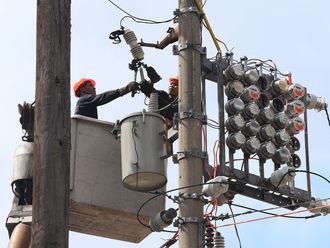Manila: President Benigno Aquino encouraged the active participation of the United States in defense issues affecting the Asia Pacific region.
The US should reactivate its alliance among ten member countries of the Southeast Asian Nations (ASEAN), and also with China and other developed countries in the region, said Aquino at the Asia Society Forum in New York, the transcript of which reached Manila.
The US presence, despite its economic woes, must be felt in the region, said Aquino, adding this could be done by attending the East Asia Summit.
At the same time, Aquino hinted that the US must be part of the so-called multilateral dialogue with China in defusing the tension of overlapping claims in the South China Sea.
"The only way to solve it is to engage all those who have claims on it on a multilateral basis with ASEAN centrality, because if we do it on a bilateral basis, we will just be exaggerating and exacerbating the problems of competing claims," said Aquino.
He called on fellow Asean members to draft and approve the implementing rules of the Code of Conduct it signed with China in 2002.
China has favoured bilateral agreements among claimant countries to resolve the tension in the South China Sea. China is also against the involvement of the US in the issue.
China, Vietnam, and Taiwan claim the whole of the South China Sea. The Philippines, Malaysia, and Brunei claim some parts of the mineral-rich Spratly Archipelago in the South China Sea.
Aquino also announced the signing of an executive order that called for the establishment of National Coast Watch System to defend his country's claims in the South China Sea.
Calling for the allocation of P40 billion in the next five years for the modernization of the Armed Forces, Aquino said, "Maintaining freedom of navigation in the West Philippine Sea and protecting our sovereign rights over our 200-mile Exclusive Economic Zone are among our security imperatives,"
"It is essential for the Philippines to acquire a respectable deterrent capability to protect its sovereign rights over the area, which is vital for its energy and food security, as well as for international maritime trade," Aquino added.
Strengthening claims of the Philippines in the Spratly Archipelago does not mean ending ties with China said Aquino, adding, "This maritime dispute does not define the multi-layered relations between the Philippines and China."
He likened this to the economic relationship of China and the United States.











